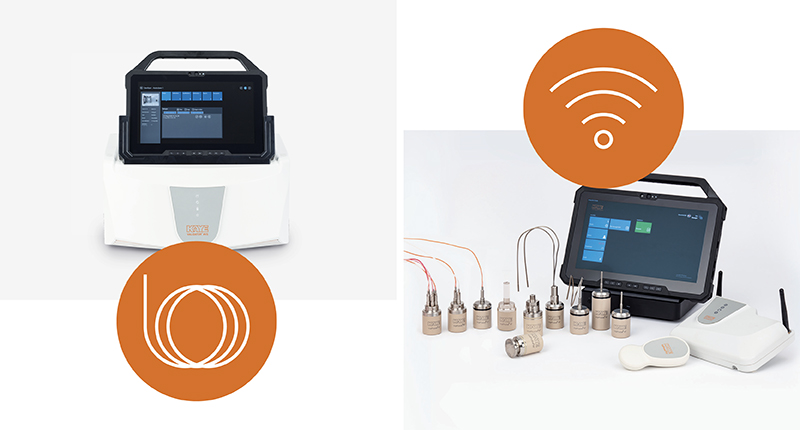For quite some time, the question of whether to use a wired data recorder or a wireless battery-powered data logger for the validation of thermal processes in the GxP environment has been discussed.
The high-level answer is both measurement principles are valid, but the specific application should determine which data collection method should be used. In this brief article, we want to question and explore the widespread myth that one of the two systems is fundamentally superior. Instead, we want to point out that both systems have their specific advantages and disadvantages, and their potential use heavily depends on the actual requirements of the respective process. In addition to the common argument of easier handling, other important selection criteria should be considered before making a decision.
- Application
- Measurement variables (T, P, RH, etc.)
- Temperature, Pressure, RH Range
- Sensor Accuracy/Allowable Deviation Criteria/Acceptance Criteria;
Specifications by standards and guidelines
- Sensor Technology (Pt100/1000 or Thermocouples)
- Handling and insertion of sensors
- Sensor Calibration and Adjustment, Frequency and Process of Calibration
- System and handling risks
- Purchase costs, operating and maintenance costs
The wide variety of processes to be validated in the pharmaceutical and biotechnology industries, their largely regulated number of measuring points, and compliance with process-dependent deviation criteria over a very large temperature range from liquid nitrogen (-196°C) to hot air tunnels (>400°C) require a thorough evaluation of the measurement systems. Depending on the sensors used, it is necessary to take into account the sensor-specific properties such as maximum temperature range, flexibility, shock sensitivity, stability, accuracy and reproducibility, calibration and simple exchange on-site.
If real-time data are needed, the possible limitations of an RF-based data transmission (limitation for wireless battery-powered transceivers at temperatures < -40°C) are best tested directly on the system. In the risk assessment, the possibility of data loss or limited real-time data transmission due to the temperature range of battery-operated data loggers should be checked and listed as an important evaluation point. Profound knowledge about the sensor design and the associated properties contribute to the practical creation of the validation SOP.
Conclusion
In summary, it can be said that both wired data logging systems like the Kaye Validator AVS and wireless battery-powered data loggers like the Kaye RT ValProbe system are valuable tools for the validation of thermal processes. And if used correctly, they make possible a recognized, technical solution for the validation of thermal processes. Both solutions have their advantages and disadvantages, whose consideration should be part of the decision-making process. In some applications, the choice of a hybrid system delivers optimal results.
In addition to the purely technical requirements, other selection criteria such as handling, calibration and verification possibilities, and the purchase costs, operating and maintenance costs should be considered when making a decision. Additional points like
- standard-compliant documentation and data integrity
- compliance and fulfillment of legal requirements
- intuitive software and user-friendly data management
- local support before and after purchase
- ISO 17025 accreditation
- market acceptance and acceptance by regulatory authorities
...round off the well-founded selection of a potential measurement system. As a fundamental principle, we recommend a practical test directly on the system to be qualified. Our global network of employees and certified partners is always at your disposal. Contact us today via the links provided below and arrange a non-binding consultation with our support team.
To enquire about a product or service, you can reach out to us online and one of our representatives will be happy to assist you! To contact us, please visit us here: https://www.kayeinstruments.com/en/contact
To request a demo of any of our products, please visit our demo request website here: https://www.kayeinstruments.com/en/demo
Follow us on LinkedIn or register for our newsletter: https://www.kayeinstruments.com/en/newsletter-subscription
Copyright: Amphenol Corporation


